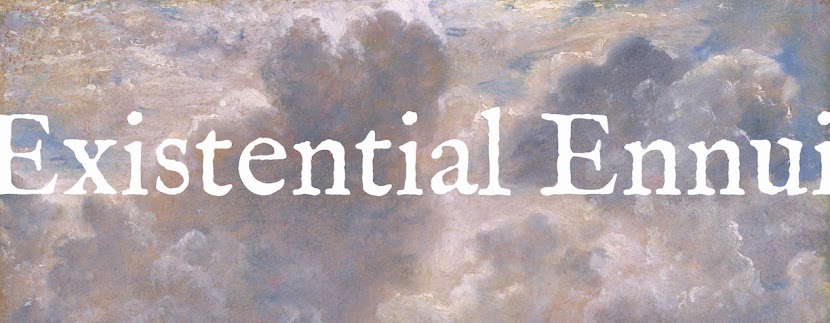Unless of course I decide not to blog about any of them. Or indeed blog at all. Merry Christmas, and a happy new year!
10. Our Man in Havana by Graham Greene (Heinemann, 1958)
Informed by Graham Greene's experiences working for the Secret Service during the war, Our Man in Havana may be a fairly frothy confection (the fate of poor Dr. Hasselbacher aside) but it still effectively skewers what Greene perceived as the credulity of British Intelligence. "It seemed to me that either the Foreign Office or the Intelligence Service had amply merited a little ridicule," he wrote of the novel in Ways of Escape. Speaking of which...9. Ways of Escape by Graham Greene (Bodley Head, 1980)
Part autobiography, part travelogue, Greene's book-by-book saunter down memory lane is not only illuminating as to the origins of many of his novels, short stories and plays (the background to, and inspiration for, The Quiet American, for example, is extensive, incorporating diary entries) but frequently arresting and eye-opening too, not least when he discusses his fondness for opium, marijuana and cocaine.8. Station Eleven by Emily St. John Mandel (Picador, 2014)
I noted in my top ten of the best graphic novels I read in 2015 that I'm a sucker for post-apocalyptic dystopias, and Station Eleven is a fine example of the sub-genre – elegantly written, strangely uplifting and with a fascinating and compelling internal mythology (as evidenced by the one-page Dr. Eleven comic book insert in my copy of the first edition).7. The Holm Oaks by P. M. Hubbard (Joseph, 1965)
In my review of The Holm Oaks I ventured that it "might be the quintessential Hubbard novel", and further suggested that "the novel could almost be seen as a prototypical eco thriller". True to form I neglected to say whether it's any good or not, but its appearance in this top ten should offer some guidance there.6. Eleven by Patricia Highsmith (Heinemann, 1970)
Graham Greene – who, as is becoming clear, features heavily in this top ten (to paraphrase New Order, everything went Greene for me this year) – wrote in his foreword to Eleven that Highsmith in her short stories "is after the quick kill rather than the slow encirclement of the reader, and how admirably and with what field-craft she hunts us down". Quite so.= 5. private i / Foreign Exchange by Jimmy Sangster (Triton, 1967 / 1968)
I think Hammer Horror-meister Jimmy Sangster's two spy/crime thrillers starring ex-British Intelligence operative turned private investigator John Smith might have been the most purely enjoyable novels I read in 2015 – "kind of early le Carré crossed with Len Deighton's unnamed working class secret agent and with a dash of Adam Hall's Quiller mixed in for good measure", as I put it in my review.4. A God in Ruins by Kate Atkinson (Doubleday, 2015)
A companion novel to Life After Life, A God in Ruins is as evocative in its own way of life during wartime as Graham Greene's The Ministry of Fear (about which more shortly); but it's also a beautiful – and beautifully written – meditation on the big stuff of existence: love, death, family, chance, choice.3. Carol by Patricia Highsmith (Bloomsbury, 1990)
"If [Todd] Haynes's film brings [Carol] and Highsmith to a new audience, so much the better, because Carol deserves to be widely read, especially by those who might otherwise dismiss Highsmith as a crime writer," I wrote in my review, adding that "it's recognisably the work of the author of The Talented Mr. Ripley (1955), This Sweet Sickness (1960) and The Cry of the Owl (1962), and as good in its own way as any of those novels". Still haven't seen the blummin' film yet though.











Some in your list I must read
ReplyDeleteYes, read them you should.
DeleteThanks for the list - I will track them down
ReplyDeleteI've always been put off Our Man in Havana by the boring
Alec Guinness film but will give it a go
Greene wrote a brilliant short horror story called ' A Little Place off the Edgware Road' which is easily available in his collections. Wow ! Wish he'd written more in this vein.
My favourite novel this year is 'A Bright Moon for Fools' by Jasper Gibson - a black comedy about an
elderly British conman at large in South America. Best comic novel for years. Read it ! Cheaply available.
Paul Connolly
The only Greene short story I think I've read is "I Spy", which is rather good (it's in The Spy's Bedside Book but you can probably read it online). I'll look out for "A Little Place off the Edgware Road" – and noted on Gibson!
DeleteA very interesting list, and I have read none of them. I had planned to read Elmore Leonard in 2015, but did not. I hope I do get to some of his books in 2016. I am glad to hear that you liked A God in Ruins; I had not decided whether I would try that one or not.
ReplyDeleteI don't agree with Anonymous about the film version of OMiH.
ReplyDeletehttp://www.christopherbellew.com/?p=1346
Christopher